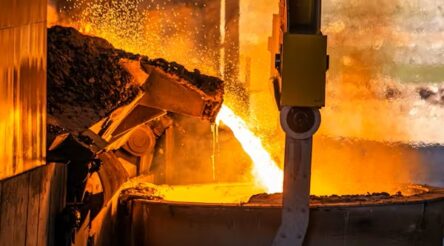Australia’s treasure trove: The renewables transition is reliant on critical minerals

By Professor Akbar Rhamdhani
You might not know it, but critical minerals are the hidden engine powering our daily lives. They drive the functionality of our electronics, medical devices and renewable energy systems. Without them, our world would grind to a standstill and the technology we rely on every day, such as smartphones and laptops, would not exist.
With these resources being so crucial, every country has identified a list of minerals required for – among other things – economic growth and the renewable energy transition. Australia has identified 26 critical minerals, each one vital to ensuring the success of our country’s future. Here’s the problem: these resources are finite and the demand for these minerals is only increasing.
To solve this problem, we need to accelerate the work already underway to sustainably extract, process and recycle these critical minerals. Done right, it could put Australia at the forefront of the production and circularity of the building blocks that our collective future hinges on.
The minerals powering the green energy transition
Minerals such as lithium, cobalt and nickel are essential components in the batteries of electric vehicles (EVs), solar panels, wind turbines and renewable energy storage systems. They make the shift from fossil fuels to renewables possible. As such, nations are rushing to secure them.
Deloitte predicts the demand for them will increase six-fold by 2050. The Intergovernmental Panel on Climate Change echoes these sentiments and has highlighted serious concerns about the critical minerals needed for batteries.
This surge in demand poses a significant challenge in supply chains. As our need for technologies like EVs and renewable energy systems increases, these resources could become scarce.
Innovative solutions for our sustainable future
To address these issues directly, the extraction and processing of critical minerals must be managed sustainably to ensure future availability and minimise environmental impacts. At Swinburne, we are pioneering research and developing innovative technologies to address these challenges, including sustainable extraction processes, the development of low-carbon production, and energy storage management.
For example, we have recently published a series of papers on developing low-carbon, low-cost recycling processes for lithium-ion batteries. Most laptops, mobile phones, power banks, e-scooters and the like contain these batteries, but recycling them can be challenging and carbon intensive. By using aluminium from secondary resources as a reductant, we can recover lithium and cobalt from end-of-life battery materials without using carbon, significantly reducing the environmental impact. This could revolutionise how we manufacture batteries for EVs and solar as we accelerate the green energy transition.
Additionally, innovations in materials science can help us develop alternative materials, more efficient technologies, and better recycling methods, potentially leading to new industries and economic opportunities.
New research powering sustainable production practices
Implementing sustainable and ethical mining practices is also crucial to minimising environmental impacts and ensuring the longevity of mineral resources. Australia owns about half of the world’s lithium, which is in high demand from our strategic international partners and essential to modern society. At Swinburne, we are at the forefront of developing and advocating for sustainable practices that can position Australia as a leader in extraction of critical minerals.
By more sustainably utilising the mineral wealth we already possess, Australia is poised to become a powerhouse of critical minerals, essential for a low-carbon future. Through strong investment in research, innovation, and sustainable practices, we can ensure that these finite resources are used efficiently and responsibly, securing our place as a global leader in the transition to a clean energy economy.
Professor Akbar Rhamdhani is a Professor in Extractive Metallurgy and Metals Recycling at Swinburne University of Technology
@aumanufacturing Sections
Analysis and Commentary Awards casino reviews Defence Gambling Manufacturing News Online Casino Podcast Technology Videos





